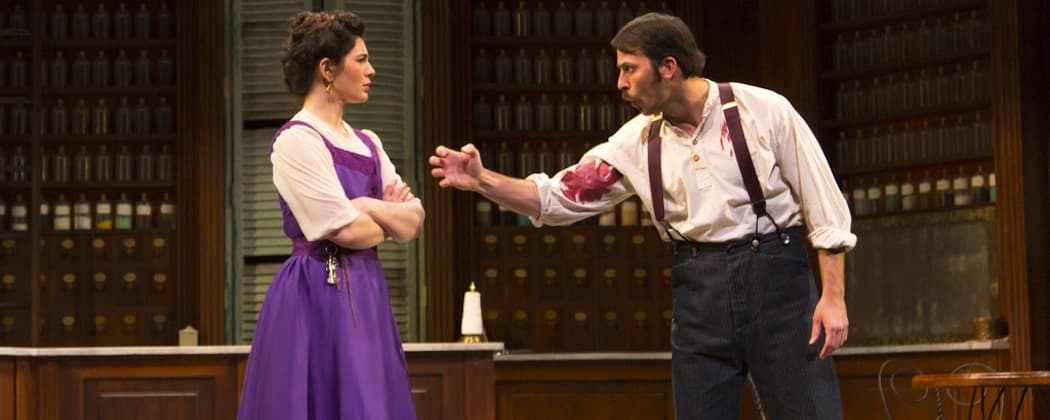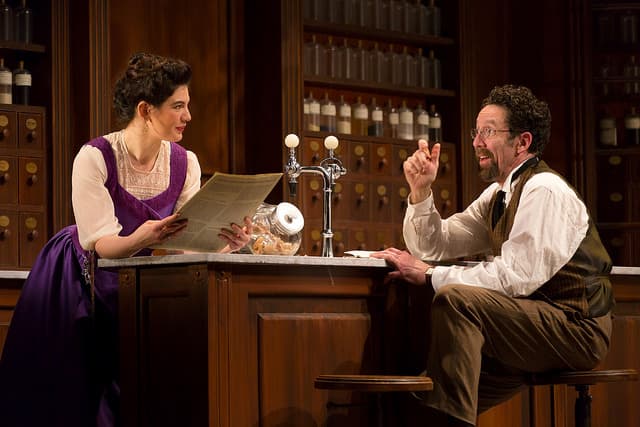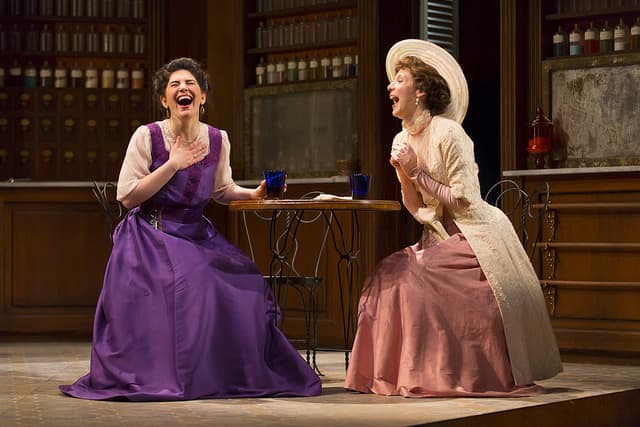Advertisement
Melinda Lopez's 'Becoming Cuba' — Which Side Are You On?

BOSTON – What would you have done in the … fill in the blank. What would you have done in the Holocaust, as a Jew or gentile? The South during slavery? Northern Ireland during the Troubles?
That seems to be the question haunting Melinda Lopez’s “Becoming Cuba” (at the Boston Center for the Arts through May 3). Her great-grandmother, according to family legend, took to the hills to join the Cuban rebels rather than let the Spanish send her to an internment camp.
Adela, the protagonist of the Huntington Theatre Company’s playwright in residence has a different mindset. Her husband, a pharmacist, was killed administering morphine in events leading up to the Spanish-American war, and she’s determined to carry on his work in 1897 Havana while staying above the fray despite a half-brother who’s on the side of the rebels and who’s come to enlist her help.

But can she stay neutral on a moving train? Neither the guerrillas nor the loyalists think so and her determination to be a professional healer in the midst of chaos seems more and more unlikely amid the growing chaos, and the growing accusations that she has turned her back on life.
That “Becoming Cuba” turns into a satisfactory debate on the dilemma of risking one’s life by taking a stand doesn’t erase the sense that it takes too long for Lopez to get there in this 2 ½-hour play. I’m not complaining about the length, but the lack of dramatic movement in the first half of the play.
Lopez seems to be underpinning the lure of Adela’s determination to hold on to the civilized normalcy of the pharmacy, the bantering with customers, the familial bonding with her sister, the ministering to the health of others. Set designer Cameron Anderson has designed a cozy apothecary, with bottles lining the wall and tables and chairs welcoming the customers to sit for a spell. But beyond the wall is an abstract painting with gashes of red warning about the fire next time.
The conversations among Adela, her siblings, the American journalist tracking the end of the Spanish reign and the rise of the Americans, and the Spanish lieutenant and his wife, underscore the normalcy of her life but don’t do enough to advance the drama. Which isn’t to say that the writing isn’t good. Quasi-historical figures humorously confront the audience about the horrors of Cuban history and American and Spanish complicity in those horrors. (Director M. Bevin O'Gara does a stylish job balancing the natural and "supernatural" elements.) Lopez cites a famous review of “Waiting for Godot” to describe baseball — “Nothing happens. Nine times.”
There’s also purple writing. “Wait for me and we’ll grab the world with both hands.” “His blood is as red as yours.”

The larger problem, though, is one of stasis in the first half, which isn’t helped by Christina Pumariega’s downbeat performance as Adela. It’s not easy to make normalcy and stasis charismatic, but Pumariega — except when she’s trading jokes with local favorite Marianna Bassham as the Spanish lady — doesn’t breathe enough life into Adela. Whether that’s her fault, Lopez’s, director M. Bevin O’Gara’s, or all the above, the performance is too listless to carry the action forward.
At least until the second act, when the druggist’s dilemma comes fully into focus and she has to come to terms with what’s happening around her, including the American journalist’s love for her. The second act feels more like drama and less like a history lesson, though the irony is that history comes more alive when the drama comes more to the forefront. Particularly since the history is so interesting.
The past is of course prologue for the Castro revolution, where taking sides becomes even more problematic. Lopez doesn’t spell out the similarity, but skillfully lets it simmer with talk of the United States’ growing interest in “coming to the rescue” of the Cubans competing with questions about imperial motivation. Lopez also had the Arab Spring and other rebellions in mind when she wrote the play. Here are Lopez, O'Gara and the cast talking about it:
As Manny, the revolutionary in the family, Juan Javier Cardenas has the juiciest role and he knows what to do with it. Bassham is also excellent in a part that calls for both humor and pathos, both of which she delivers beautifully.
It’s unfair to compare the new play to “Sonia Flew,” another Huntington play that really put Lopez on the national map 10 years ago because they mine such different territory. What can be said, though, is that Lopez proves again that she’s one of the city’s most important writers, even if it takes a while to make the point in “Becoming Cuba.”

